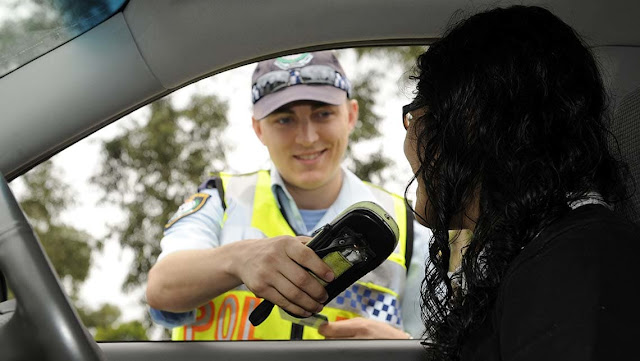Having problems with your teen and alcohol or other drugs? Three 'must-do's' that may help you get through ...
Hardly a week goes by without me receiving an email or a phone call from a parent who is having a problem dealing with their son or daughter and their alcohol or other drug use. Some of these mums and dads put on as brave a face as possible when they speak to me, while others are terribly distraught, some even breaking down in tears, desperate to find a solution to the problems they are facing with their child. This week I had four parents call me in just one day, all of whom were struggling with very different issues, but all telling me that they felt they really had no idea where to go to get help or advice.
Now I need to emphasise that I am not a trained counsellor or health professional, and I make sure I make that clear to anyone who calls me for advice in this area. I'm also not a parent so it is impossible for me to imagine what these people are going through. When I am approached by these people I see my role more as one of referral, trying to direct them to the correct services, agencies, as well as health professionals who may be able to assist them with their problem. There are usually three pieces of advice, however, that I do give them, three simple 'must-do's' that any parent struggling with a teen and their alcohol and other drug use can and should do to help them get through this extremely difficult time. They are as follows:
Now I need to emphasise that I am not a trained counsellor or health professional, and I make sure I make that clear to anyone who calls me for advice in this area. I'm also not a parent so it is impossible for me to imagine what these people are going through. When I am approached by these people I see my role more as one of referral, trying to direct them to the correct services, agencies, as well as health professionals who may be able to assist them with their problem. There are usually three pieces of advice, however, that I do give them, three simple 'must-do's' that any parent struggling with a teen and their alcohol and other drug use can and should do to help them get through this extremely difficult time. They are as follows:
- Make sure you and your partner are okay before you do anything else. By the time these parents speak to me the vast majority are a complete mess! They have been struggling to deal with what has been going on in their home for some time and the whole family is suffering. Marriages are sometimes at breaking point and if there are other children (particularly younger siblings) they too can be terribly affected. Let's be clear here, if you're a mess then there is no way that you're going to be able to help your teen. Don't be afraid to get professional help - so many are afraid to do this, believing that it somehow means they have 'failed' as parents - nothing could be further from the truth. You can go to your GP and ask for a referral to a health professional who specialises in this area (yes, they do exist!) or if you feel comfortable speaking to counsellor at the school your child attends, they may also be able to assist. Whoever you speak to, you need to use the opportunity to talk through what you are going through and possibly even get some strategies on how to communicate with your son or daughter more effectively. It is vital however that this is all about you - it is not about fixing your child's problem - this is all about making sure you are ok! You can worry about your child's issue once this is done ...
- Before you react to anything, walk away and count to 10! Without doubt, every parent I speak to talks about the clashes they have with their teen and often the reason they took the step to contact me is that these are escalating. These clashes are usually due to the child not doing something that was expected of them or flagrantly breaking a rule and then the parent reacting. If you want one simple thing that will almost automatically reduce the suffering in the home it is never, ever react immediately. You're angry, they've been found out and their back is against the wall - it's not going to end well. I'm well aware that this simple strategy does not go towards solving the alcohol and other drug issue you have with your teen but it does make life more bearable! When something happens, walk away - count to 10, make a quick call to a friend and vent, scrawl out swear words on a piece of paper for a couple of minutes - and then come back to them and express your concerns. Once the old pattern of reacting straight away is broken, you have a better chance of dealing with the issue in a more positive way (and you'll feel less stressed!)
- Remember that you're the adult and they're the child - one of the lines I hear constantly from parents is "But they won't even meet me halfway ...". A key to good parenting in this area is the setting of clear boundaries and rules and making sure consequences are in place should they break those rules. That said, young people are still going to push against those boundaries and you will need to punish them accordingly - that's a normal parent-child relationship. Unfortunately, there are teens who are going to ignore rules altogether and no matter what you do, they're simply not going to tow the line. Now this is not the norm and if your child is acting out in a major way you may need to change the way you approach your relationship. Instead of keeping insisting that they at least meet you halfway, you may have to go 'over halfway', reach over and grab them and then pull them back! So much of this has to do with parents realizing that you're not going to have total control over their teen's behaviour, no matter what you do ... Now I'm not saying you do this the first time they do the wrong thing, but if you obviously have a problem and you fear losing them - you have to change tack! What I'm talking about here is essentially a change in attitude - no matter how mature they may think they are, you are dealing with an adolescent who doesn't have a fully developed brain. They aren't able to think through things rationally and everything is based on a 'gut reaction'. Remembering this when you are trying to talk to a difficult teen is not going to solve the problem but it may at least lower your frustration level.
If you do have a child who you believe is having issues with alcohol and other drugs you need to remember that you are not alone. You also need someone to talk to about it. If you have a family member or friend that you believe is appropriate - go for it - but in my experience, so often parents who go down this route end up feeling even more frustrated when the person they trusted ends up telling them not to worry and that 'it's just a stage they're going through'!
If you do need to talk through what is going on in your family and you want a non-judgemental ear to listen I advise parents to contact a wonderful organisation called Family Drug Support (FDS). FDS was formed in 1997 by Tony Trimingham who lost his son to a heroin overdose. It is a caring, non-religious and non-judgemental organisation primarily made up of volunteers who have experienced first-hand the trauma and chaos of having family members with drug issues. They have a Support Line for parents that operates 24 hours a day, 7 days a week - 1300 368 186.
As already said, the most important thing parents need to do is to make sure they're ok before they do anything else. This can involve getting professional help or simply having a great family or friend support network around them when things get tough. Remember, you're no good to your child if you're not coping well - when you feel good (or at least better) you're going to be able to deal with this type of issue much more positively and effectively ...




Comments
Post a Comment